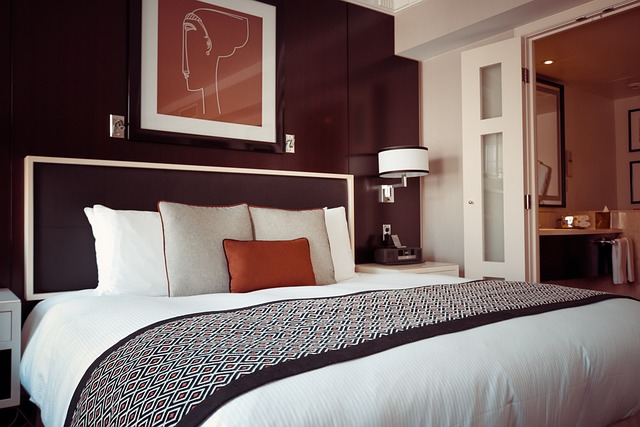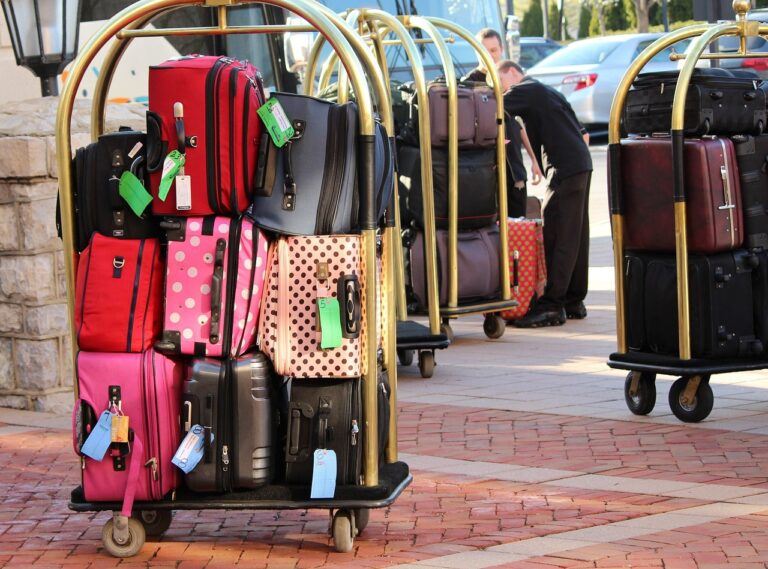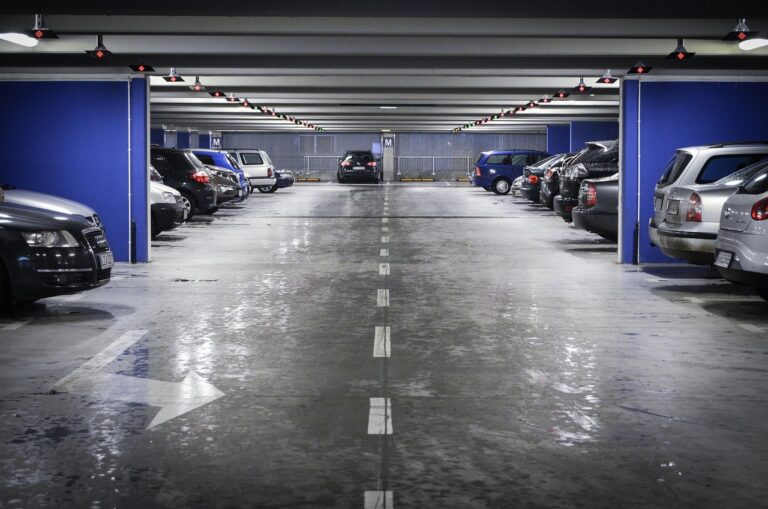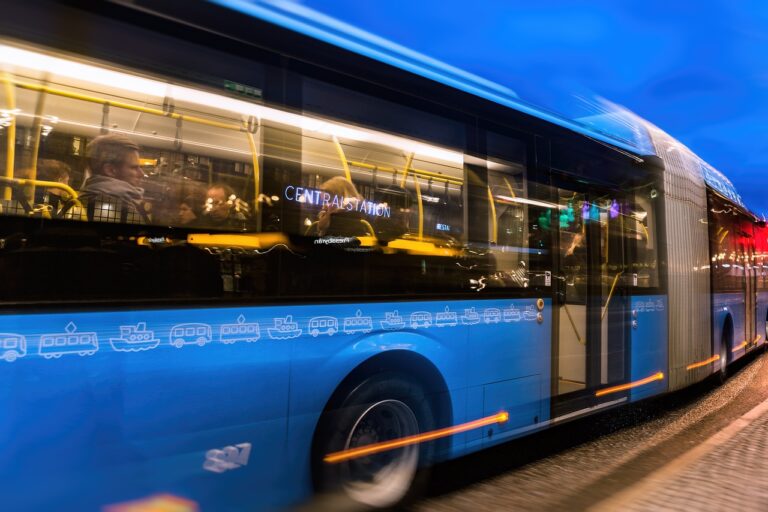7 Safety Tips for Solo Female Traveling in International Hotels
Solo female traveling can be an empowering and exhilarating experience. Exploring new places, discovering different cultures, and enjoying some much-needed time away can be incredibly fulfilling. However, it also comes with its own set of challenges, especially when it comes to ensuring your personal safety.
Hotel safety tips for solo females staying in international hotels are about more than just securing their room door at night. It involves a series of thoughtful actions and strategies that begin before you even step foot in the hotel and there are many factors to consider.
In this article, our goal is to equip you with practical advice and actionable tips that will help you travel with confidence and peace of mind.
Table of Contents
Assessing and Choosing the Right Hotel
Selecting the right hotel is a foundational step in ensuring your safety while traveling alone. Your choice of accommodation can significantly impact your overall travel experience, and it’s crucial to prioritize safety alongside comfort and convenience. Here’s a comprehensive guide to help you make an informed decision when booking your hotel.

1. Research and Review
Before booking a hotel, thorough research is essential. Start by reading reviews from previous guests, focusing particularly on comments related to safety and security. Websites like TripAdvisor, Google Reviews, and Yelp can provide valuable insights into the experiences of other travelers. Look for mentions of security issues, neighborhood safety, and the general condition of the hotel. Pay attention to any recurring concerns, such as reports of poor lighting in the area or instances of theft.
- Red Flags to Watch For: If multiple reviews mention issues like broken locks, unresponsive staff, or poor security practices, these should be taken seriously. Negative feedback about a hotel’s security can indicate potential risks.
2. Evaluate the Location
The location of your hotel plays a crucial role in your safety. Here’s what to consider:
- Neighborhood Safety: Research the surrounding area of the hotel. Check if it’s well-lit and frequented by pedestrians. Avoid areas that seem deserted or have a reputation for being unsafe. Use tools like Google Maps Street View to get a visual sense of the area.
- Proximity to Emergency Services: A hotel located near emergency services, such as hospitals or police stations, can provide an added layer of security. If you find yourself in an emergency, knowing that help is close by can be reassuring.
- Accessibility: Ensure that the hotel is easily accessible but not too close to high-traffic areas that might make it a target for petty crime.
3. Check Hotel Security Features
A hotel’s security features can greatly influence your safety. Look for the following:
- 24/7 Front Desk: A front desk that operates around the clock indicates that there is always someone available to assist in case of emergencies or concerns.
- Security Personnel: The presence of security personnel adds an extra layer of protection. Hotels with dedicated security staff are generally more proactive about safety.
- Surveillance Cameras: Security cameras in common areas like lobbies, hallways, and elevators can deter potential threats and provide evidence if something goes wrong.
- Room Security: Ensure that the rooms have secure locks and peepholes. Consider hotels that offer additional security features, such as electronic key cards and in-room safes.
4. Leverage Technology
In today’s digital age, technology can enhance your safety. Use apps and online tools to gather information and stay connected:
- Safety Apps: Download apps that provide real-time safety updates, such as emergency alerts and local crime information. Some apps allow you to share your location with trusted contacts, adding an extra layer of security.
- Hotel Apps: Many hotels offer apps that provide information about hotel amenities, safety protocols, and direct communication with hotel staff. These can be useful for reporting any issues quickly.
- Social Media and Forums: Engage with travel communities on social media platforms or forums to gather recommendations and warnings about specific hotels or neighborhoods.
Choosing the right hotel involves a careful balance of research, evaluation, and leveraging modern tools. By taking these steps, you’ll be well on your way to ensuring a safer and more enjoyable stay.
Safe Booking Practices for Solo Female Traveling
Ensuring your personal information remains secure during the booking process is a crucial aspect of travel safety. As a solo female traveler, protecting your data can help prevent potential fraud and unauthorized access to your accounts. Here’s a guide to safe booking practices to safeguard your personal information from the moment you make your reservation.
1. Use Secure Booking Platforms
When booking your hotel, it’s important to use reputable and secure platforms. Here’s how to ensure you’re using a safe site:
- Look for HTTPS: Always book through websites that start with ‘https://’ rather than ‘http://’. The ‘s’ indicates that the site uses encryption to protect your data during transmission.
- Check for Security Symbols: Look for a padlock icon next to the URL in your browser’s address bar. This symbol indicates that the website has a valid SSL certificate, which secures your personal information.
- Choose Reputable Platforms: Stick to well-known travel websites or directly book through the hotel’s official website. Avoid booking through unknown or dubious sites, as they may not have adequate security measures in place.
2. Protect Your Personal Information
When providing personal details during the booking process, take the following precautions:
- Limit the Information Shared: Only provide the information that is necessary for the booking process. Avoid sharing excessive personal details that are not required for the reservation.
- Read Privacy Policies: Review the hotel’s privacy policy to understand how your information will be used and protected. If the policy is not clear or does not address data protection, consider it a red flag.
- Consider Anonymous Booking Options: Some booking platforms offer anonymous booking options or allow you to use a pseudonym. These can add an extra layer of privacy and security.
3. Choose Secure Payment Methods
The method of payment you use can impact your financial security. Here’s how to make safe payment choices:
- Use Credit Cards: Credit cards generally offer better fraud protection compared to debit cards. They often come with built-in security features that help you dispute unauthorized charges.
- Avoid Public Wi-Fi for Transactions: When making payments, avoid using public Wi-Fi networks, as they can be insecure. Instead, use a secure and private connection or a VPN (Virtual Private Network) if you must use public Wi-Fi.
- Monitor Your Statements: Regularly check your credit card and bank statements for any unauthorized transactions. Report any suspicious activity immediately to your financial institution.
4. Be Cautious with Confirmation Emails
After booking, you will receive confirmation emails that contain sensitive information. To protect this data:
- Verify Email Authenticity: Ensure that the confirmation email comes from a legitimate source and not a phishing attempt. Look for signs of authenticity, such as the correct domain and contact details.
- Secure Your Email Account: Use strong, unique passwords for your email account and enable two-factor authentication if available. This adds an extra layer of security in case your email account is compromised.
5. Safeguard Your Booking Details
Keep your booking details secure to avoid unauthorized access:
- Store Information Securely: Save your booking confirmation and related documents in a secure place. Avoid storing them on public or shared devices.
- Shred Sensitive Documents: If you print out booking confirmations or travel itineraries, ensure that you shred any documents you no longer need to prevent identity theft.
By following these safe booking practices, you’ll significantly reduce the risk of your personal information being compromised.
Checking In and Day One Strategies
The first day at your hotel is crucial for setting the tone of your stay. Implementing effective strategies during check-in and on your first day will help ensure a safe and secure experience throughout your trip. Here’s how to navigate your arrival and initial activities to maximize your safety as a solo female traveler.

1. Safeguarding Your Room Key or Card
Once you receive your room key or card, take measures to keep it secure:
- Avoid Announcing Your Room Number: Do not display or announce your room number in public areas. This minimizes the risk of someone using that information to access your room.
- Report Lost Keys Immediately: If you lose your key or card, report it to the hotel staff right away. Request a new key and ensure that the old one is deactivated to prevent unauthorized access.
2. Assessing Your Room for Security
Upon entering your room, perform a thorough security check:
- Inspect Locks and Safes: Check that all locks, including the door and window locks, are functioning correctly. Test the in-room safe if available and ensure it is operational.
- Familiarize Yourself with Exits: Locate emergency exits, stairwells, and fire escape routes. Review the hotel’s emergency exit plan, often posted on the back of your room door, to understand how to evacuate quickly if needed.
4. Navigating Common Areas Safely
Be mindful of your surroundings when moving through common areas:
- Choose Elevators Over Stairs: Opt for elevators rather than stairwells, especially at night. If someone you do not trust enters the elevator with you, exit and wait for the next one.
- Stay Aware in the Lobby and Hallways: Pay attention to people around you in the lobby, hallways, and other shared spaces. Avoid engaging with individuals who seem suspicious or overly persistent.
5. Staying in Touch with Trusted Contacts
Keeping in touch with someone who knows your whereabouts can enhance your safety:
- Share Your Itinerary: Inform a friend or family member of your hotel name, address, and contact information. Provide them with your travel itinerary and expected return times.
- Set Up Location Sharing: Use location-sharing apps or services to allow your trusted contacts to track your movements. This adds an extra layer of security in case of an emergency.
6. Managing Your Belongings
Properly managing your personal belongings is key to preventing theft or loss:
- Hide Valuables Securely: Use the in-room safe for storing valuables like passports, jewelry, and large amounts of cash. If a safe is unavailable or not functioning, consider hiding items in discreet locations such as inside a sock in a drawer or under a removable panel.
- Avoid Leaving Items in Plain Sight: Keep your shopping bags and other belongings out of view from the window or hallway. This reduces the likelihood of theft or break-ins.
7. Understanding Hotel Policies
Familiarize yourself with the hotel’s policies and procedures:
- Review Hotel Security Measures: Ask about the hotel’s security measures, including the presence of security personnel, surveillance cameras, and emergency protocols.
- Know Emergency Contacts: Obtain contact information for the hotel’s front desk, local emergency services, and the nearest embassy or consulate.
8. Ensuring Digital Security
Protecting your digital information is as important as safeguarding physical belongings:
- Be Cautious with Hotel Wi-Fi: Avoid accessing sensitive information or conducting financial transactions over hotel Wi-Fi unless you’re using a VPN (Virtual Private Network) for added security.
- Monitor Your Accounts: Regularly check your bank and credit card statements for any unauthorized transactions. Notify your financial institution immediately if you notice any suspicious activity.
4. Managing Housekeeping and Room Access
Ensure that your room remains secure while you’re staying in the hotel:
- Set a ‘Do Not Disturb’ Sign: Use the ‘Do Not Disturb’ sign on your door to maintain privacy and prevent unannounced entry by housekeeping or other staff.
- Coordinate with Housekeeping: If you prefer housekeeping to clean your room while you’re present, coordinate with the staff to schedule cleaning times that work for you.
Handling Specific Situations
While staying safe at your hotel is crucial, navigating local areas and handling specific situations with caution can further protect you as a solo female traveler. This section provides practical advice for managing common scenarios and ensuring your overall safety.

1. Dealing with Unwanted Attention
When exploring new areas, it’s essential to be prepared for potential unwanted attention:
- Stay Aware of Your Surroundings: Continuously scan your environment, especially in crowded or unfamiliar areas. Be mindful of who is around you and avoid distractions like looking at your phone while walking.
- Trust Your Instincts: If you feel uneasy about a situation or person, trust your gut feeling. It’s better to err on the side of caution and remove yourself from any potentially dangerous situations.
2. Safely Using Transportation Services
When using cabs, rideshares, or public transportation, follow these guidelines:
- Verify Ride Details: Always confirm the details of your ride before getting in. For rideshares like Uber or Lyft, verify the driver’s name, vehicle model, and license plate number through the app.
- Opt for Reputable Services: Use well-known and reputable transportation services. Avoid accepting rides from unsolicited offers or drivers who approach you directly.
- Share Your Ride Information: Share your ride details with a trusted friend or family member. Many rideshare apps allow you to share your trip status in real-time, providing an extra layer of safety.
3. Exchanging Currency Safely
When exchanging currency, choose secure and trustworthy methods:
- Use Official Exchange Services: Exchange your U.S. dollars at official currency exchange offices, banks, or reputable hotel services. Avoid using street vendors or informal exchange services, which may offer unfavorable rates or engage in scams.
- Keep Exchange Receipts: Always request and keep receipts for currency exchanges. This can be helpful if you need to dispute any discrepancies or track your transactions.
4. Securing Important Documents
Ensure the safety of critical documents, including your passport:
- Use the Hotel Safe: If a hotel safe is available, store your passport, travel documents, and extra cash there. If the safe is not working or unavailable, consider alternative hiding spots like under a drawer or inside a securely locked suitcase.
- Keep Copies: Maintain copies of important documents, such as your passport and travel insurance details, in a separate location from the originals. This can be useful if the originals are lost or stolen.
5. Safety in Bars and Social Settings
When visiting bars or social venues, adhere to these safety practices:
- Choose Well-Lit Venues: Select bars and social venues that are well-lit and populated. Avoid secluded or poorly lit areas that could increase your risk of encountering problems.
- Manage Your Drinks: Always get your drinks directly from the bar and never accept drinks from strangers. If you need to use the restroom, take your drink with you to prevent potential tampering.
- Monitor Your Drink: Keep an eye on your drink at all times and avoid leaving it unattended. If you suspect that your drink has been tampered with, do not consume it and alert the staff immediately.
7. Utilizing Technology for Added Safety
Leverage technology to enhance your security:
- Use Tracking Devices: Carry a tracking device such as an Apple AirTag in your purse or place one inside your mobile phone case. This can help locate your belongings if they are lost or stolen.
- Install Safety Apps: Consider installing safety apps that offer real-time location tracking, emergency alerts, and contact sharing. Some apps allow friends or family to monitor your location and receive alerts if you are in distress.
By implementing these strategies, you can better manage various scenarios that may arise while traveling.
Conclusion
Solo female traveling, especially internationally, requires vigilance, preparation, and smart decision-making. By following the strategies and hotel safety tips outlined in this guide, you can significantly enhance your safety and confidence while on the road.
Thank you and I hope you found this article interesting and informative. Feel free to leave comments or questions below. Also, read my next article about top personal safety products for women.
In addition, visit my other website to learn all about home safety and keeping your family safe.
W. McCain





